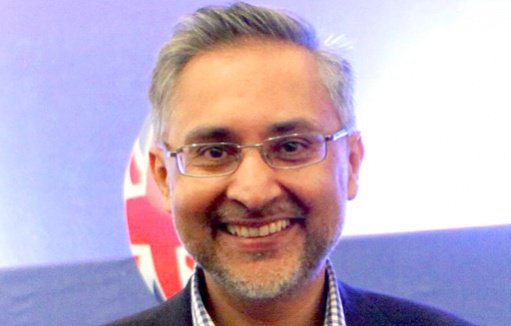Question: The UK has voted to leave the EU. How does this decision affect Indonesia and UK relations?
Answer: I don’t think there’s a big impact on our relationship. The UK is Indonesia’s fifth-largest investor. When President Joko “Jokowi” Widodo visited London in April, [the then]Prime Minister David Cameron announced investment deals worth US$19 billion. All of the companies making those investment decisions are still planning to continue with their investment plans.
Two weeks ago, BP announced an $8 billion investment in West Papua at their LNG facility. They’ve already broken ground. That project is going to create 10,000 jobs in Indonesia and that decision came after the referendum.
In the two visits from our leaders last July and in April this year, we signed seven memorandums of understanding: on maritime issues, space cooperation, policing cooperation, research and innovation, higher education, sports to help prepare for the Asian games and the creative industry.There’s no reason not to continue with the work in all seven areas.
Our relationship has been growing and it can continue to grow. Even with this Brexit vote, none of that changes.
You might remember we now have people in key positions who understand Indonesia. My ex-foreign minister is now the finance minister, Philip Hammond, and my ex-mayor of London is now the foreign minister, Boris Johnson.
What are the implications for trade and investment?
The UK is still the fifth largest economy in the world and we are a very competitive economy. The unemployment rate is at historic lows, our inflation rate is low, our banking and financial system is very strong and we’ve been the fastest growing economy in the G7. Investment from Indonesia in the UK is actually quite small, so there’s no impact on that. Investment from the UK to Indonesia is quite big. We are the fifth largest investor, but there’s no reason for us to reduce that. Our cultural cooperation, our educational cooperation, everything continues. There’s no change in our visa policy. Indonesians can still go to the UK without any problems.
One of the areas that is important is SVLK (National Timber Legality Certificates). We have invested for years to ensure that the SVLK works well and we’ve been a close partner with the Environment and Forestry Ministry to ensure the success of that scheme.
The Brexit vote sparked global financial market volatility and economic uncertainty and Indonesia is not immune to this. How can we maintain strong ties?
Indonesia’s economic fundamentals are very strong. Your fiscal deficit is very low, your debt-to-GDP ratio is very low and actually your currency is very stable and the size of your domestic market is very strong.
I think there are prospects for Indonesia’s economy to grow at 5 percent or more in the future, for this year and next year and so on. Economic confidence in Indonesia is still high. British companies are beginning to shift their orientation from focusing on Europe to focusing more globally.
How can you assure Indonesian businesspeople that your country is still an attractive destination?
The UK is the second-largest economy in Europe, second only to Germany. Indonesian companies want access to the second largest economy in Europe. People are interested in doing business with the UK because our economy is competitive, our regulatory environment is very stable and very consistent, our rule of law is very strong, our workforce is competitive and our infrastructure is pretty good.
For some businesses who want to invest in the UK so that they can access the EU market, yes, there’s a little bit of uncertainty. But so far we don’t have Indonesian businesses engaged in that practice. We don’t have Indonesian businesses that are set up in the UK to sell products to the EU.
There are growing concerns that the Brexit process will absorb the UK’s attention and will disrupt Britain’s efforts to seek peace and security, address extremism and create world order?
The new Prime Minister Theresa May has created a new ministry for Brexit. It will focus on those negotiations with Europe. The Brexit negotiations will take a lot of the time of the prime minister. We are equally going to be busy trying to ensure that our relationship with the rest of the world is big, deep and growing.
We also have to work together to solve international problems, from extremism and terrorism to climate change, bird flu and anti-microbiology resistance. The UK continues to be very active. We are active in the G20, in the G7, we are one of the five permanent members of the UN [Security Council], we need to continue to work together on the issues.
What can ASEAN learn from Europe and Britain’s experience as this region is also turning into a community?
What I can tell you is from the UK’s experience, operating in the single market has delivered economic growth in Europe, it has been a force for political stability. ASEAN is a long way to becoming a single market. I think the lesson that ASEAN can take is not to give up on economic integration because when you look around the world, actually people are benefiting from economic integration. The UK will remain committed to integration, to free trade and to open economies.




